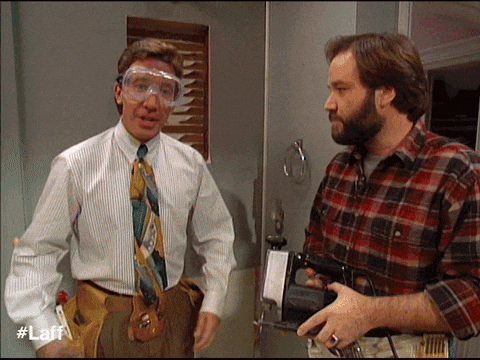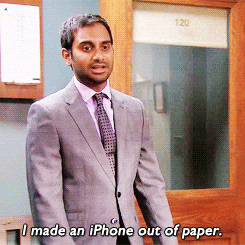Why Tools Matter More Than Dreams for Success and Fulfillment
We've all been told to chase our dreams, but what if the better path is building tools that carry us forward? Inspired by a Hank Green vlog, I explore why focusing on tools can lead us to places we might never have imagined in our wildest...dreams.

If you're enjoying the Copper Den, please consider subscribing so that the next post gets delivered straight to your inbox!
I recently watched a video from Hank Green that really stuck with me.
Sometimes, an idea will just kind of stick in the back of my head, demanding I grapple with it. Maybe you’ve experienced this too.
An Old (Parasocial) Friend
I’ve known of Hank Green (and his brother John) for a long time now.
I remember watching Crash Course videos in 9th grade history class back in 2012 (my knees ache just realizing that was 13+ years ago).
Since the early Crash Course days, the Green brothers have expanded their presence, both online and off. As far as I can tell, the duo has a plethora of YouTube channels both as individuals and a joint one called vlogbrothers.
Before I came across Hank’s video above, I watched another interesting video that Hank posted about managing money in the AI age. I highly recommend checking that one out if you have any general interest in personal finance stuff, but I won’t go into it here.
This most recent video really resonated with me, though.
The video can be distilled down to its title: don’t follow your dreams, follow your tools. The title alone doesn’t do the video justice. These seven words offer a profound way to look at life. It’s also an idea that so succinctly combines other ideas about which I’ve previously written.
America and Her Dream
In America, we have this obsession with dreams. At various points of our lives, many of us have had a dream (or many).
Some might be very practical. Some less so.
Growing up, I recall wanting to be a firefighter but also an astronaut. Not a NASA astronaut. A Buzz Lightyear astronaut. A space warrior with lasers and buttons on his suit.

Like I said, some were practical.
As we age, dreams evolve.
High schoolers dream of the perfect college to attend. College students come up with dream careers.
Dreams can be great. Or they can leave us wanting. Some of us have dreams. Others don’t. There’s this huge emphasis placed on an idea that doesn’t resonate with everyone.
I’m not discouraging dreaming. I’ve dreamt a lot in my life, but dreams can also hinder us in at least two ways.
Not Everyone Has a Dream
Growing up surrounded by imagery of the American Dream makes it seem like we must have one.
We should feel a patriotic drive to become the next Rockefeller or to own a house. I’m not sure which one feels harder to achieve nowadays.
What happens, then, if someone doesn’t have that perfect dream in mind? It’s incredibly easy to feel discouraged.
Not having a dream can make us feel lost. It’s counterintuitive but also a feeling that isn’t entirely foreign. Why do we think we need to uncover our purpose in our teens, 20s, or even 30s?
We don’t need a dream to make progress in our lives.
Not Every Dream Is Attainable
Admittedly, this second statement is a bit harder for me to grapple with.
I’m somewhat of a romantic when it comes to dreams. I’d love to see everyone do everything they want, but that isn’t always realistic.
I’ll cherry-pick an outrageous example.
I could dream of being an NBA player or an athlete of pretty much any kind. That dream (for me) is almost certainly unattainable.

There are numerous physical constraints. My age alone puts me past the prime of many athletes. I realized while writing this that I’m actually older than Super Bowl champion Jalen Hurts.
I could dream of being an NBA player, but that dream won’t come true. Some dreams are simply unachievable.
That’s not to say you shouldn’t try, which is where the first part of Hank’s statement comes in.
Whether you have a dream or don’t is irrelevant in Hank’s world.
Follow Your Tools
Instead of dreaming, Hank suggests we follow our tools.
Throughout his life, Hank Green has done a lot of things. He’s an author, a YouTuber, an educator, a scientist, and even recently an app creator. He’s done all these things without (according to him) dreaming.
Hank doesn’t dream. He follows his interests and develops tools.

In the beginning, this didn’t really work out well for him. In the video, he mentions many failed efforts where time and money were wasted. Or were they?
Each failure he endured taught him a little bit. And each failure helped hone the tools he uses today.
Hank focuses on projects. The way I think about this is that he looks at his “wants” versus “dreams.”
This is a bit of a “splitting hairs” situation; these words can be interchangeable.
You can dream of becoming a famous author, and you can want to become a famous author.
For the sake of this article and Hank’s perspective, I’m interpreting the “want” as a project Hank (or you for that matter) might want to pursue. For example, you might want to write a book.
Writing a book is something most people with a laptop can achieve (it doesn’t have to be a good book). Becoming Stephen King isn’t as much in our control.
By wanting to write a book, Hank forced himself to hone the tools to learn how to write a book. That doesn’t mean he has to use that one tool forever and always. Instead, it’s an addition to his tool kit.
Maybe, the next project is a website. Or maybe he used his writing tool to create scripts for his YouTube channel.
Choosing Your Own Adventure
Thinking of tools instead of dreams is accepting that we don’t know where life might take us. We can only wander along the trail and collect the things that interest us.
There could be a tool you developed when you were 12 or 22 that could end up being important in a decade’s time.
In my post on Frost’s poem, “The Road Not Taken,” I discuss how Steve Jobs audited a calligraphy class after dropping out of college. Jobs went on to apply that knowledge when developing fonts for an early version of macOS.
I’m willing to bet Jobs had no idea he’d end up using that knowledge ever again. He developed a tool that interested him, and it happened to be of use later down the road.

A dream focuses on a predetermined path. Oftentimes, too many things must go right in order to reach the finish line of some chance aspiration.
Tools are open-ended. They can take us anywhere. That’s the beauty of them.
If you have a dream, great! Keep it. Cherrish it. I hope you achieve it. But I also challenge you to consider the tools that might help you out along the way.
Who knows, maybe on the route to developing a new tool for your dream, you find something that feels even more destined for you.
What tools have you developed that have come back to help you out in life? What’s a new tool you want to develop?
